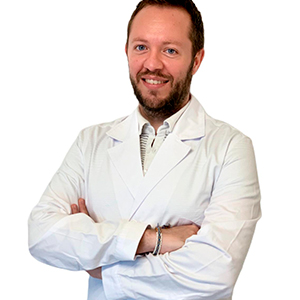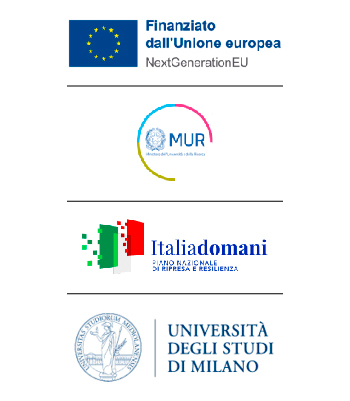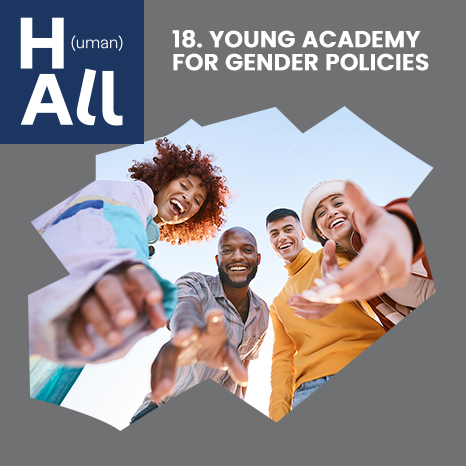RIGHT TO IDENTITY
To identify those migrants dead during the migration routes: an important project with a fundamental human value. Crucial from a juridical point of view as well. The protection of the right to personal identity concerns not only those who died, but also underage unaccompanied foreign minors and victims.
The research focuses on the study of new legal medical and forensic science strategies, to encourage constitutional principles of equality and non-discrimination and to build an inclusive society.
The project promotes awareness-raising initiatives, the development of a travelling exhibition showing the objects of missing persons, comparative research with the French legislation and the formulation of guidelines to identify migrants.
TEAM
OUR PARTNERS

WHAT DO WE DO
INIZIATIVE
THE RIGHT TO PERSONAL IDENTITY AND THE POWER OF THE OBJECTS
Interview with Cristina Cattaneo, full professor of Legal Medicine

Why is the right to personal identity so important?
The right to personal identity for dead people is fundamental for many reasons: for their stories, for their lives, for the respect of their dignity, for the consequences on alive people. To give identities back to these victims is important not only for those who are dead, but also for those who are still alive.
Why does the right to personal identity concern alive people too?
Because it is a matter of rights that we rediscovered mainly with the migrants. Let’s think about widows or orphans, reunification, but also about the right of inheritance. We helped a mother and her children to emigrate to Australia. The father died in a shipwreck, but without a death certificate the widowhood and the parental authority weren’t possible. This is only one of the many cases. There are consequences on the mental health too.
How?
Now medicine has defined what the ambiguous loss is: it means not to know whether your own child or partner are dead or not, it represents a limb that can drive you to a psychiatric condition. One interesting story is the one about two Italian Croatiangirls who lost their father. They grew up with the belief of being abandoned. Only twenty years later they managed to identify him, they knew that he was dead, they had the time to grieve, close a circle and rebuild their lives. The same happened to the man’s mother, who had never left her shack figuring that her son would turn up sooner or later. Shortly before her death they gave her back his leftovers, and she was buried with them.
Why, even if the right to personal identity is so important, we don’t speak about it that much?
It is an under-recognized problem, mainly because of ignorance. Many people think absurd that one cannot identify a person immediately after their death. It is seen as a non-problem. Then there’s the issue of discrimination. Unidentified bodies are the one of discriminated people, with a different social status, skin color or religion. It seems a problem related to “the others”, distant, especially in the case of migrants. Actually, the same thing happens in our cities too: missing people, with certain exceptions, live on the edge without family ties. 102 nameless people were buried in Milan in the last 30 years.
So what hinders the identification and the right to personal identity?
It isn’t a technical problem. We are not speaking about complex issues, but about the ABC of legal medicine. It is a quite easy process: we only need to find ante mortem traces from the relatives and do an autopsy to collect post mortem data. It is neither a matter of resources. Today building a generic profile from a corpse costs very little. We have the proofs that we can do it. But we don’t. Just because we don’t want to.
Human Hall project promotes a travelling exhibition about the right to personal identity. What is it?
We will start from the small exhibition already present in the Museo Universitario of Anthropological, Medical and Forensic Sciences for the Human Right (MUSA). We have a double goal: from the one hand to build consensus about the right to personal identity, telling what doesn’t work not only for the migrants but for everyone. On the other we want to keep alive the memory of the tragedies, such as the shipwreck that occurred on April 18, 2015, in Libya, which caused 1,000 victims. That boat is still there, at the port of Augusta. We would like it to be part of the exhibition to tell – through their objects and their written words- the stories of those young people who travelled in the hold hoping for a better future.
What kind of story can an object tell?
Personally, I identify corpses as a technician, but the first thing that strikes me is the thought of the attachment of a person to a specific object. Even a non-validated tram ticket can make you feel something. Their dreams, where they wanted to go. Objects are powerful elements. They bring with themselves messages of equality. At MUSA, the Labanof Museum, we ask young people to empty their pockets and compare their objects with the ones of nameless people. In this way they understand that they are quite similar: a picture, earphones. The objects- also the simple ones such as a toothbrush- bridge the gaps, tell stories.
How much is it important for such a project to be part of a Hub?
It is fundamental, and not only for the scientific society: there is a double potential because, beside the technical skills, the protection of the human rights is important too. Economists, jurists, computer scientists, media: experts talk to each other to find solutions. Maybe for the development of a law as well.
Why is the right to personal identity so important?
The right to personal identity for dead people is fundamental for many reasons: for their stories, for their lives, for the respect of their dignity, for the consequences on alive people. To give identities back to these victims is important not only for those who are dead, but also for those who are still alive.
Why does the right to personal identity concern alive people too?
Because it is a matter of rights that we rediscovered mainly with the migrants. Let’s think about widows or orphans, reunification, but also about the right of inheritance. We helped a mother and her children to emigrate to Australia. The father died in a shipwreck, but without a death certificate the widowhood and the parental authority weren’t possible. This is only one of the many cases. There are consequences on the mental health too.
How?
Now medicine has defined what the ambiguous loss is: it means not to know whether your own child or partner are dead or not, it represents a limb that can drive you to a psychiatric condition. One interesting story is the one about two Italian Croatiangirls who lost their father. They grew up with the belief of being abandoned. Only twenty years later they managed to identify him, they knew that he was dead, they had the time to grieve, close a circle and rebuild their lives. The same happened to the man’s mother, who had never left her shack figuring that her son would turn up sooner or later. Shortly before her death they gave her back his leftovers, and she was buried with them.
Why, even if the right to personal identity is so important, we don’t speak about it that much?
It is an under-recognized problem, mainly because of ignorance. Many people think absurd that one cannot identify a person immediately after their death. It is seen as a non-problem. Then there’s the issue of discrimination. Unidentified bodies are the one of discriminated people, with a different social status, skin color or religion. It seems a problem related to “the others”, distant, especially in the case of migrants. Actually, the same thing happens in our cities too: missing people, with certain exceptions, live on the edge without family ties. 102 nameless people were buried in Milan in the last 30 years.
So what hinders the identification and the right to personal identity?
It isn’t a technical problem. We are not speaking about complex issues, but about the ABC of legal medicine. It is a quite easy process: we only need to find ante mortem traces from the relatives and do an autopsy to collect post mortem data. It is neither a matter of resources. Today building a generic profile from a corpse costs very little. We have the proofs that we can do it. But we don’t. Just because we don’t want to.
Human Hall project promotes a travelling exhibition about the right to personal identity. What is it?
We will start from the small exhibition already present in the Museo Universitario of Anthropological, Medical and Forensic Sciences for the Human Right (MUSA). We have a double goal: from the one hand to build consensus about the right to personal identity, telling what doesn’t work not only for the migrants but for everyone. On the other we want to keep alive the memory of the tragedies, such as the shipwreck that occurred on April 18, 2015, in Libya, which caused 1,000 victims. That boat is still there, at the port of Augusta. We would like it to be part of the exhibition to tell – through their objects and their written words- the stories of those young people who travelled in the hold hoping for a better future.
What kind of story can an object tell?
Personally, I identify corpses as a technician, but the first thing that strikes me is the thought of the attachment of a person to a specific object. Even a non-validated tram ticket can make you feel something. Their dreams, where they wanted to go. Objects are powerful elements. They bring with themselves messages of equality. At MUSA, the Labanof Museum, we ask young people to empty their pockets and compare their objects with the ones of nameless people. In this way they understand that they are quite similar: a picture, earphones. The objects- also the simple ones such as a toothbrush- bridge the gaps, tell stories.
How much is it important for such a project to be part of a Hub?
It is fundamental, and not only for the scientific society: there is a double potential because, beside the technical skills, the protection of the human rights is important too. Economists, jurists, computer scientists, media: experts talk to each other to find solutions. Maybe for the development of a law as well.
IDENTITY IN THE AREA OF MEDICINE AND LAW
Interview with Cecilia Siccardi, assistant professor of Constitutional Law

Why the need to protect the right to personal identity?
Today the process of identification of a nameless body, like in the case of the thousands of migrants dead in the attempt of crossing the Mediterranean, is characterized by an absence of law. For instance, there is no obligation of an autopsy: this can be ordered by the Public Prosecutor only when it is useful for the investigations. The recovery of a body and its identification are not only medical-legal topics, but also interdisciplinary issues, involving both the law and the human rights.
How?
There is a matter of right to healthcare and dignity, that’s because leaving a body without a name is an inhuman and degrading treatment. This issue concerns not only those who died, but the families too. Without an identification, the families will continue the search for them, without having the rights connected to the loss of a relative, such as a legacy and the right to housing.
What’s the goal of the project?
In collaboration with Institut Médico-légal Paris we are currently studying French law, which is characterized by similar issues. The aim is to develop migrants’ guidelines. We want to spread the topic through a series of initiatives, such as a travelling exhibition showing the migrants’ objects.
What is the Hub contribution?
We cannot speak about human rights as something separated from the rest of the other disciplines. This is the value of Human Hall: to value different skills and knowledge. This is proven by the right to personal identity: here both medical-scientific and juridical aspects are intertwined.
Why the need to protect the right to personal identity?
Today the process of identification of a nameless body, like in the case of the thousands of migrants dead in the attempt of crossing the Mediterranean, is characterized by an absence of law. For instance, there is no obligation of an autopsy: this can be ordered by the Public Prosecutor only when it is useful for the investigations. The recovery of a body and its identification are not only medical-legal topics, but also interdisciplinary issues, involving both the law and the human rights.
How?
There is a matter of right to healthcare and dignity, that’s because leaving a body without a name is an inhuman and degrading treatment. This issue concerns not only those who died, but the families too. Without an identification, the families will continue the search for them, without having the rights connected to the loss of a relative, such as a legacy and the right to housing.
What’s the goal of the project?
In collaboration with Institut Médico-légal Paris we are currently studying French law, which is characterized by similar issues. The aim is to develop migrants’ guidelines. We want to spread the topic through a series of initiatives, such as a travelling exhibition showing the migrants’ objects.
What is the Hub contribution?
We cannot speak about human rights as something separated from the rest of the other disciplines. This is the value of Human Hall: to value different skills and knowledge. This is proven by the right to personal identity: here both medical-scientific and juridical aspects are intertwined.
RIGHT TO PERSONAL IDENTITY: WHY IT MUST BE RECOGNIZED
Interview with Lorenzo Franceschetti, assistant professor of Legal Medicine

Why should we dedicate space and resources to the right to personal identity?
From the one hand the aim of the project is to engage those people who do not deal with this matter from a technical point of view. From the other is to stimulate bodies and institutions to generate a unique and unambiguous awareness. The right to personal identity is a very broad subject, often underestimated.
Why?
For many reasons. It is common opinion that the right to personal identity concerns only those migrants coming from countries that don’t have any interest in the bodies’ recovery and identification. However, every day we have proofs that it’s not like that. When there is the will, it is very possible to guarantee an identity. The Tsunami, back in 2004 is an example: since it struck tourist destination and Western citizens too, it was established a huge organization both for the rescue and the bodies’ identification.
From an operational point of view, which are the main difficulties of each day?
There are some bureaucratic constraints. Since there is not a commonly recognized law, it’s very hard to climb over some obstacles. For instance, when a body is under investigation it is possible that there is no cooperation between states and proxies. Consequently, there is the need to streamline the procedures. That’s why it’s essential to develop a database with information at European level, and so at a Global one too. But it’s also a matter of knowledge: the right to personal identity is not so well known since it is felt like something distant. But it’s not only about dead people, it produces some effects on the alive ones too. What we do as coroners is a medical activity: to identify a body is a curative action that helps people, since this process weighs heavily on their life and healthcare.
Why should we dedicate space and resources to the right to personal identity?
From the one hand the aim of the project is to engage those people who do not deal with this matter from a technical point of view. From the other is to stimulate bodies and institutions to generate a unique and unambiguous awareness. The right to personal identity is a very broad subject, often underestimated.
Why?
For many reasons. It is common opinion that the right to personal identity concerns only those migrants coming from countries that don’t have any interest in the bodies’ recovery and identification. However, every day we have proofs that it’s not like that. When there is the will, it is very possible to guarantee an identity. The Tsunami, back in 2004 is an example: since it struck tourist destination and Western citizens too, it was established a huge organization both for the rescue and the bodies’ identification.
From an operational point of view, which are the main difficulties of each day?
There are some bureaucratic constraints. Since there is not a commonly recognized law, it’s very hard to climb over some obstacles. For instance, when a body is under investigation it is possible that there is no cooperation between states and proxies. Consequently, there is the need to streamline the procedures. That’s why it’s essential to develop a database with information at European level, and so at a Global one too. But it’s also a matter of knowledge: the right to personal identity is not so well known since it is felt like something distant. But it’s not only about dead people, it produces some effects on the alive ones too. What we do as coroners is a medical activity: to identify a body is a curative action that helps people, since this process weighs heavily on their life and healthcare.
Cristina Cattaneo, Cecilia Siccardi, Lorenzo Franceschetti






















